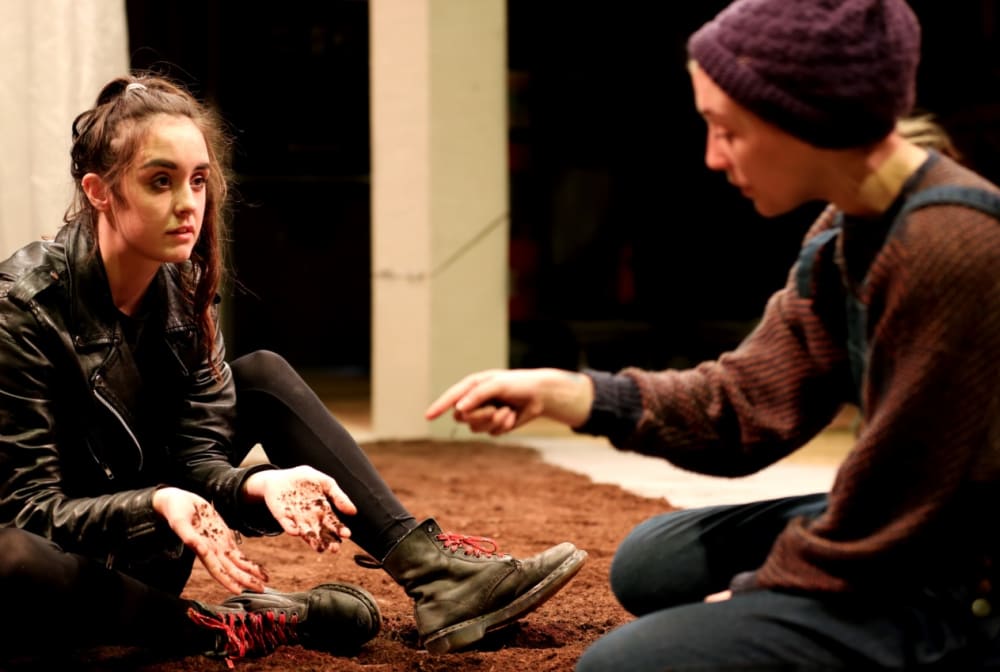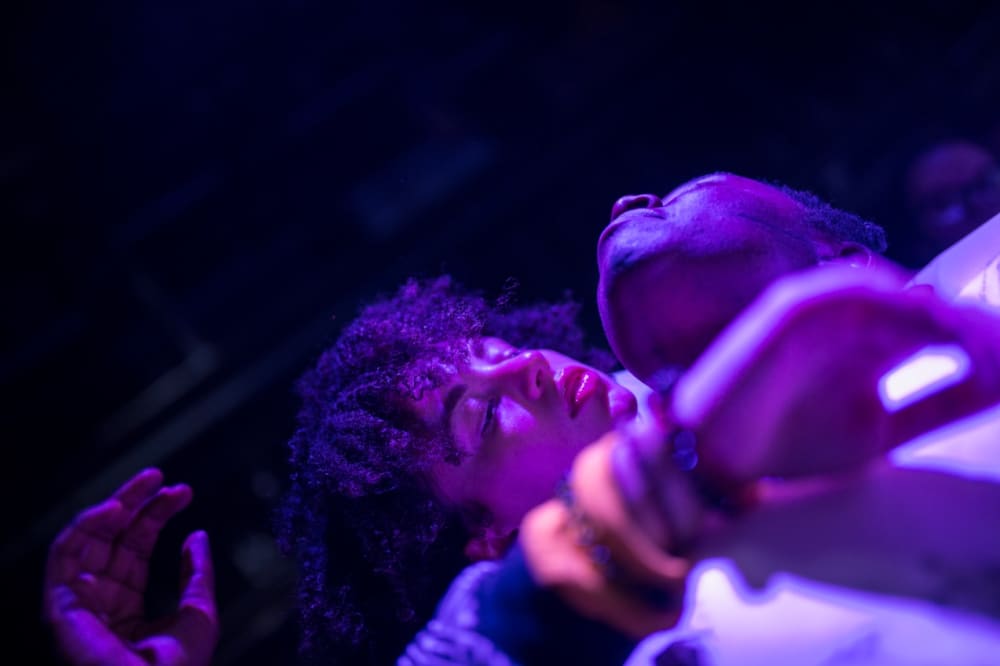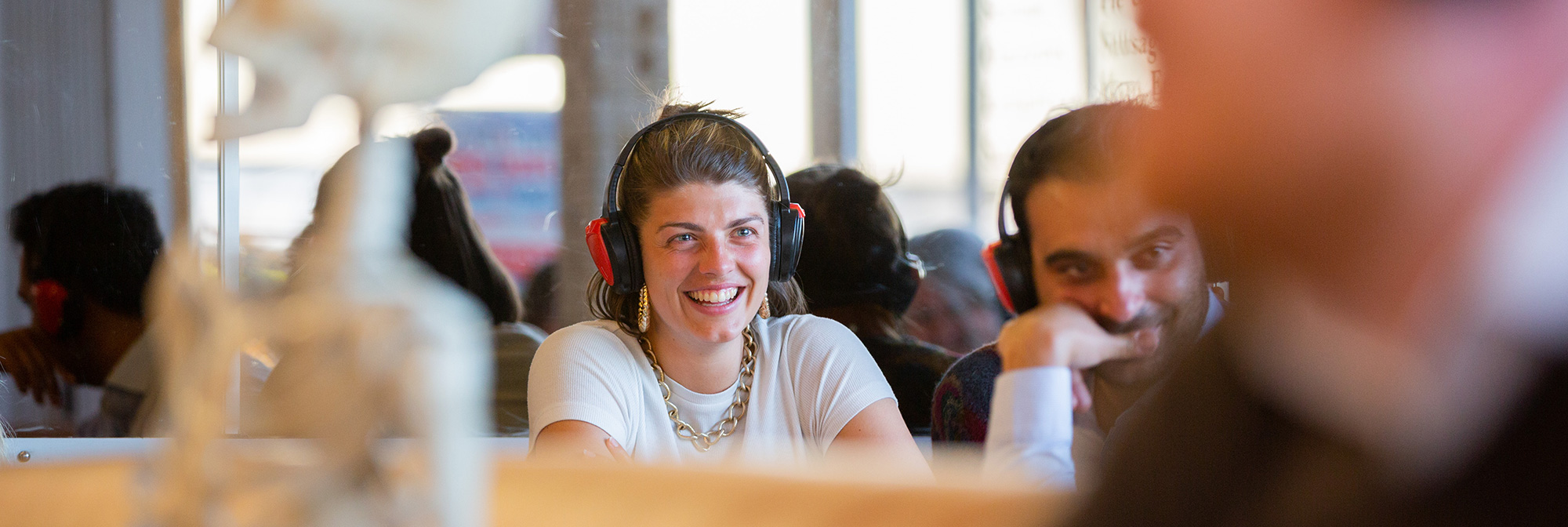For our new courses at Wimbledon, the BA Acting and Performance and the BA Contemporary Theatre and Performance, we will be challenging conventional notions of actor training so we are looking for those special candidates, the ones with a lot to say, who thrive on collaboration and who want to be highly experimental in their approach to performance making. Do you think that could be you?
In an article for The Stage newspaper Adrian Kear, Programme Development Director for Acting and Performance at Wimbledon, was asked what he thought made the perfect UCAS application. In his response he referred to a notional production, Henrik Ibsen’s masterpiece Hedda Gabler, and gave an example of how a potential Wimbledon candidate could make themselves stand out from the crowd. If you were right for Wimbledon you just wouldn’t say that your ambition was to play Hedda, as it’s one the greatest roles for an actor ever created. Instead, you would tell us about the urgency you feel to play this role, why a 21st century audience needs to hear what Hedda has to say. You’d also tell us how you would site or stage your Hedda, making it current, contemporary and this being UAL, highly creative and original.
Writers like Ibsen were at the centre of a movement in theatre defined as Naturalism. This evolved in the in the 19th century and enabled the concept of the “Fourth Wall”, that invisible barrier in theatres at the proscenium which separates the actors from the audience. This separation brought about the pretence that neither audience nor performer could see the other and that everything happening on stage was taking place without any reference whatsoever to its observers. Everything looks super real.

This is still the preferred way of presenting drama but you will have noticed that increasingly, performance takes place not only in specific artistic contexts such as theatres and gallery installations, but in diverse practices of everyday life. Immersive experiences are the new frontier for performance, because people want to participate in things that they feel they are a part of. This is a defining feature of contemporary culture, with performance opening up ways of seeing, feeling and understanding its rapidly changing forms and practices.
So, back to Ms Gabler. How could we apply some of these new ideas and technologies to her story? How can we transport her through that fourth wall and place her and the audience in a shared, real-world, experience? And does she need to come?
One idea might be to stage the production in an authentic villa, like the one our heroine shared with her new husband in the play. This is was done recently by a New York based company who set the action in a 17th century elegant country home. The audience were actively adding to the storyline in that their presence helped create the claustrophobia and scrutiny we know Hedda lives with.
Another recent London production, again sited in a claustrophobic period property, was preceded by Hedda tweeting her followers for 2 years! Just one small example of how digital media draws in theatre audiences and shifts the relationship in ingenious ways.
Using lines and dialogue from the play, Hedda’s social media activity draws us down links where we get to see so much more of her life and interests but we are also guided to films of the performers, all of this extending the amount of time that an audience spends with the characters and around a production. These digital interventions also offer us a different entry point of access into Hedda’s world.

Creating online worlds that augment the experience of the play are part of a growing interest in theatre that is increasingly using social and digital media in new and interesting ways.
We might even want to take our Hedda out of the bricks and mortar and create a virtual reality world for her. And maybe marry her off to a robot. Incidentally, her husband was quite dull so she might even enjoy her robot spouse, and who knows; the marriage might just be transformed. A technology-led plot change may be on the horizon.
At Wimbledon, we are committed to harnessing the powerful effects of digital technologies, robotics and virtual reality in performance at the college. We are committed because we passionately believe that new technologies will serve actors and all artists to push the barriers of traditional performance art forms. Our courses at Wimbledon will equip our graduates with the skills required to carve out new and exciting professional careers.
This is an exciting time to be a young performer. The world of theatre and performance making is being revolutionised and there are huge opportunities ahead for engaged, bold and intrepid performers. We hope that you will join us and we can make this journey together.
Find out more about Wimbledon's acting, theatre and performance undergraduate courses.

